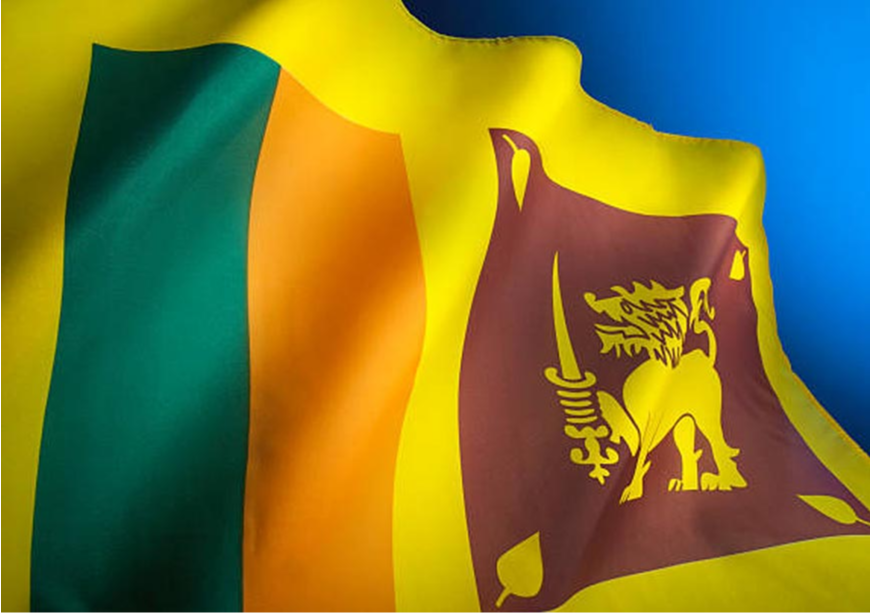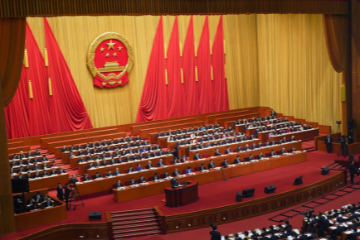
Even as a political row over the centre notifying the Rules of the Citizenship Amendment Act (CAA) continues, demands have been made to include Sri Lankan Tamils (SLT) as among the ‘persecuted’ communities in the neighbourhood eligible for Indian citizenship. However, the government had clarified early on why the SLT community has been deliberately kept out, citing the very same reason—further persecution in their country, to force them to flee to nearby India, for good this time round.
The SLT community is native to Sri Lanka but with strong cultural linkages to Tamil Nadu. The same is true for the Sinhala-Buddhists, who are descendants of Prince Vijaya, supposedly exiled from eastern India. This is not to mention the Indian origins of Pali which is the mother language of Sinhalese. Yet, there has been an unending conflict over ethnic supremacy, which ended in a 30-year violent war, which the LTTE as the SLT’s self-styled ‘sole representative’ ended up losing in May 2009.
In the early days of anti-Tamil ethnic violence, dating back to the ‘Black July’ events of 1983, thousands of men, women, and children crossed over to India in rickety fishing boats, if only to escape further killing, rape, and loot at the hands of Sinhala goons with State collusion and protection. At the height of it, the refugees totalled over 300,000. By March 2023, the number had come down to a total of 92,000-plus—58,457 of them in the government-run camps in Tamil Nadu and 33,735 refugees living on their own outside the camps. This was after a substantial number had returned home, especially during the Norway-facilitated cease-fire period in Sri Lanka (2002-06) and less so after the conclusion of the decisive ‘Eelam War IV’ (2009).
The number had come down to a total of 92,000-plus—58,457 of them in the government-run camps in Tamil Nadu and 33,735 refugees living on their own outside the camps.
Almost from day one, there have been sporadic demands for conferring Indian citizenship to SLT refugees who seek it. The late DMK Chief Minister (CM) M Karunanidhi, and incumbent CM, M K Stalin, the former’s son, have written to Prime Ministers, on the subject. In his time, AIADMK Chief Minister Edappadi K Palaniswamy had sought dual citizenship for the refugees. However, the Centre has been careful not to consider the request or option.
First major decision
The centre’s logic is based on the experience derived from the case of the Malahaya Tamils. These were the people that the British took mostly from southern Tamil Nadu to man the tea estates in the central highlands, as indentured labour, of Sri Lanka, then known as Ceylon.
One of the first major decisions of the post-Independence government in Sri Lanka, in 1948, was to render the Malayaha Tamils ‘stateless’. Tempered by the Partition psyche, the Indian position was to not ‘interfere in the internal affairs’ of nations in the neighbourhood however, after Ceylon rendered the Malayaha Tamils ‘stateless’, India felt the moral obligation to own them up and accept them, too. This was achieved through the Sirima-Shastri Pact of 1964 when Prime Ministers Sirimavo Bandaranaike (Ceylon) and Lal Bahadur Shastri (India) agreed to grant Ceylonese citizenship to 300,000 and repatriate 525,000 to India. In the interim, Indian refugees from Burma, now Myanmar, too, had started pouring in, and that required a broader framework.
International interpretations
India is possibly one of the few large and influential nations with a strong Indian diaspora presence that has not signed the UN Refugees Convention of 1951. Nor has it formulated special laws for refugees lest that should lead to international interpretations and influences that are more political than humanitarian—and keeps changing by the year and subject-nation. Subsequent developments in the global human rights arena have proved the early Indian anticipation right.
India has always been more humane and humanitarian than most Western authors of human rights and refugee relief, to open its borders to those seeking temporary shelter, as against political asylum.
It is also one of the many policy decisions that have remained unaltered despite the change of political leadership at the centre through the past many decades. However, India has allowed the UN High Commissioner for Refugees (UNHCR) to have their offices in the country. More importantly, India has always been more humane and humanitarian than most Western authors of human rights and refugee relief, to open its borders to those seeking temporary shelter, as against political asylum.
Creating conditions
It is against this background that India has strong reservations about opening up Indian citizenship to Sri Lankan Tamils, as the effort then would be for Sinhala-Buddhist hardliners in Sri Lanka to create intolerable conditions for the SLT community forcing them to flee, mostly to India. At every discourse or debate on the ethnic issue, beginning with the early days, Sinhala hot-heads did not lose an opportunity to declare that the Tamil-speaking people (including Muslims) could go to India but they had only Ceylon/Sri Lanka to call their own.
This very argument was among the key factors for the persecution of the SLT community, in the fifties, sixties and later on, in the eighties. Hence, also the justified reluctance on the part of New Delhi not to offer Indian citizenship to persecuted Tamils in Sri Lanka as that by itself would become a post-war cause for persecution in that country, which could lead to yet another humanitarian crisis and a diplomatic situation, which may not remain as docile as in the past—hence, worse.
However, the court’s rejection was not based on merits but because the petitioner had not provided any facts and figures for taking the case forward.
In this background, the Madras High Court recently rejected a plea for granting Indian citizenship to the children of Sri Lankan refugees born in the camps across Tamil Nadu, under the Citizenship Act. That petition was dated before the recent notification of the CAA Rules. However, the court’s rejection was not based on merits but because the petitioner had not provided any facts and figures for taking the case forward. This implies that on another day, the court might be inclined to consider a near-similar plea, if substantiated.
Treaty obligations
However, it is ironic that a substantial number of Malayaha Tamils who were repatriated to India against their will under the Siri-Shastri Pact too have not been granted citizenship under the Citizenship Act. They too do not qualify for Indian Citizenship under the CAA. Their numbers are put at around 35,000. In their case, the argument pertaining to the continued persecution of their SLT brethren in the island nation may hold even less as they were repatriated to India under a bilateral agreement decades ago.
In December 2023, the Madurai Bench of the Madras High Court observed that India had still not fulfilled its treaty obligations under the 1964 Pact. Welcoming the court verdict, Sri Lankan minister Jeevan Thondaman, representing the Malayaha Tamil community, said that both Sri Lanka and India must take responsibility for restoring the rights and dignity of every member of the Malayaha Tamils.
Earlier in October 2022, Justice G Swaminathan at the Madras High Court observed that the Citizenship Amendment Act (CAA), 2019, which applied to ‘persecuted minorities’ from Pakistan, Bangladesh, and Afghanistan must be applied to other (Tamil-speaking) migrants who are genealogically rooted in the soil, speak the same language and share the same culture.
Many SLT refugees want Indian passports, possibly to travel to the West as ‘economic refugees’ in the garb of ‘political victims’.
The question is if it is a case of ‘statelessness to statelessness’ for these both segments of Tamil-speaking people from Sri Lanka, or should the Centre consider some innovative ways to address their concerns and requirements? In this, most Malayaha Tamil repatriates are looking for valid documents, say, citizenship, only to establish their legitimacy in India. Many SLT refugees want Indian passports, possibly to travel to the West as ‘economic refugees’ in the garb of ‘political victims’. They are not as interested in a one-way travel document back to Sri Lanka, as their apprehension is not being issued passports once they are back home after so many years.
N. Sathiya Moorthy is a Chennai-based Policy Analyst & Political Commentator
The views expressed above belong to the author(s). ORF research and analyses now available on Telegram! Click here to access our curated content — blogs, longforms and interviews.




 PREV
PREV


